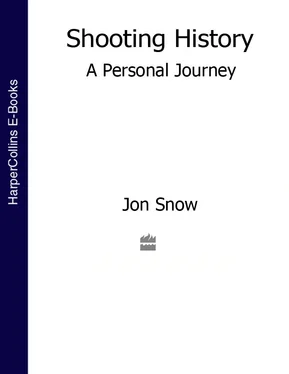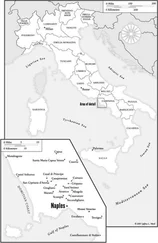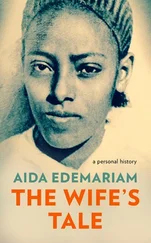It was a good six hours into our ordeal before I heard the heaven-sent voice of the Daily Mail man in the passageway beyond the cell door. Peter Lewis had somehow not only tracked down our vessel, but had also managed to arrange the intervention of the First Secretary from the British High Commission in Kuala Lumpur. Our freedom came at the expense of most of the film we had shot. We were free to leave, so long as we boarded the next plane to London. It was a salutary introduction to the vagaries of investigative journalism.
I came of reporting age in the aftermath of the Vietnam War, one of the defining periods of post-Second World War history, when the Cold War warmed to major bloodshed. A quarter of a century later I would be reporting on the war on Iraq, one of the watersheds in the evolving new world disorder that in turn followed the end of the Cold War. Both conflicts were essentially American unilateralist pre-emptive responses to what Washington perceived as threats to US interests.
Like many of my generation, as a student I had protested against the war in Vietnam, and I felt frustrated never to have had the opportunity to report on a war in which many of my older colleagues had cut their teeth. To be dispatched as a reporter, at least to try to explore the war’s legacy, even fully three years after its end, was some small recompense.
Our Malaysian adventure was set amid the prevailing certainty of global balances and security. Vietnam was now avowedly Communist, allied to the Eastern Bloc. Malaysia was emerging from the post-colonial era with its fledgling tiger economy, becoming an equally committed member of the Western capitalist bloc. It was possible to choose almost any place in the world and establish its position within the great Cold War tussle for control. In 1978 I was thirty years old, and my whole life had been set in the confident certainty that the ideological battle between left and right, between Communist and non-Communist, would prevail for all time. The world was relatively neatly divided. The idea that the Berlin Wall would ever come down, that Communism itself would ever fail, was simply inconceivable. We did not know that this order was about to suffer its first major violation, in the form of a radical Islamic revolution in Iran. Western imperialism had all but decolonised Africa and Asia; now the main point of friction was whether the emerging post-colonial states would tilt towards Moscow or Washington.
So I was privileged to start my reporting career in Africa, and to observe a state like Somalia move from British and Italian influence to independence under first Soviet and then American patronage. Somalia was only one of a number of developing countries I watched drift into the chaotic status of ‘failed state’, wide open as a recruitment and training ground for al Qaida. The disengagement of the West from countries like it was matched by a corresponding failure by the Western media to remain committed to reporting them at all. Somalia’s decline was mirrored by Angola, Sudan, Zaire, Uganda and others as we ceased to understand what was happening in them, and worse, ceased to care.
We in the West never expected to win the Cold War, or to lose it. When we did win, we were totally unprepared, and lost a huge opportunity to recast international institutions to fit the reality of a new world order dominated by one all-powerful superpower. Similarly, when Saudi militants attacked America on 11 September 2001, our response was militaristic and inadequate, and international solidarity with the United States degenerated very quickly into diplomatic warfare between much-needed allies. This book is the record of a personal journey that starts in the cosy years after the Second World War and treads the key stepping stones since, to arrive at that great pre-emptive action that was cast as an endeavour to strike down a very immediate threat to our own survival, the war on Iraq.
Six months after that conflict began, I was at Amman airport in Jordan waiting for one of the rare flights into Baghdad. I found myself surrounded by pale British ex-servicemen trying to find ways into the country to take up jobs as bodyguards, and by heavy-set, unfit Americans who seemed never to have travelled outside Texas, carrying plastic bags filled with wads of hundred-dollar bills. The Americans were contractors on danger money coming in to fix the oil, water, gas and electricity infrastructure of a devastated country. It did not feel comfortable being among them, but they fitted well with my wider tale, one from which this reporter emerges at least as blemished as anyone he reports on.
ONE
Home Thoughts
‘THEY’RE COMING!’ my elder brother Tom screamed. ‘Run!’ The wailing siren sounded close as he and my younger brother Nick fled out of the beechwood hollow. I was slow, wading through the leaves, my legs like lead weights. We had been playing on the edge of the school grounds in a towering section of the beechwoods called Fellows Gardens. Amongst the three of us, the identity of foe tended to settle on me. As they ran that day, my brothers were the friends. But there was a darker sense of an enemy beyond. Somehow the wailing siren seemed to signal the presence of a larger threat at hand. I burst into tears, stumbling to a halt, and found myself standing alone knee-deep in mud and leaves. Still the siren sounded. I suppose in retrospect it signalled only a fire, but then it sounded more eerie, more menacing.
I was born in 1947. My childhood was spent in the headmaster’s house of Ardingly College, a minor public school set in the most green and rustic wastes of Sussex. Woven in and out of the sense of recent war and lurking threat were primroses, wood anemones, bluebells, and the sumptuous peace of countryside. From my bedroom window high up in the Victorian mass of red brick and scrubbed stone stairs I could see the lake, the woods, the rolling fields, and away in the distance, the long viaduct that bore the Brighton steam train to London and back. In the woods I, my brothers and the few other children that this isolated place could muster would play our own warfare.
My childhood swung between feelings of absolute safety and daunting vulnerability. The episode in the wood, when I was perhaps five, took place in 1952, when the war still cast a long shadow over our lives. The syrupy yellowy substance that passed for orange juice, in small blue screwtop bottles, still came courtesy of ration coupons. When I stood in the X-ray machine in Russell & Bromley’s shoeshop in nearby Haywards Heath, where toxic rays revealed my dark feet wriggling inside green irradiated shoes, the ensuing purchase still attracted talk of shortages.
In the early fifties, the Germans were still the oft-mentioned core of enemy. The adult talk was of military service, of doodlebugs, of blackouts and loss. Hence the rumble of planes, the crack of the sound barrier, and that siren spoke with such clarity of present danger, and of the newer Russian threat and atomic war.
My father had not fought in the Second World War. Had he done so he would never have met my mother. This absence of service signalled early that he was different from other fathers. Too young for the First World War, he was too old to be called up for the Second. Besides, the fact that he was a cleric somehow seemed to seal the idea that he would not have been allowed to fight. His age – he was fifty when I was five – and his lack of experience in warfare were among the rare issues that rendered him slightly inadequate in my childhood. While others boasted of fathers who had bombed Dresden, I could only plead that mine had led the auxiliary fire brigade at Charterhouse School, where he had been chaplain. Of this he would talk endlessly. The responsibility had brought with it precious petrol coupons, as his eccentric open-topped Hudson Essex Terraplane Eight became the fire tender. On so many family outings in the self-same car he would recount how ladders were lashed to a makeshift superstructure, and he would roar around the privileged boarding school in search of bombs. And then, one blessed day, he found one. A bomb had fallen on the school’s hallowed lawns. Even now I’m not clear what fire he may then have had to fight. But it became my father’s moment of ‘action’.
Читать дальше












